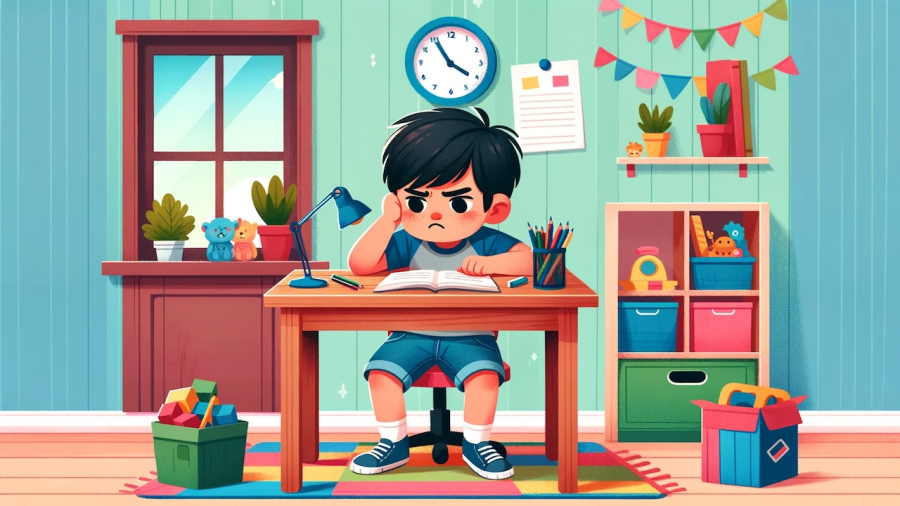Doesn’t want to be around parents, just likes to watch TV
For children, the time spent playing with parents is extremely valuable. If a child is addicted to TV to the point where they don’t need anyone else, it is a worrying sign. Many parents use TV as a way to keep their children quiet while they do housework.
Some people believe that children learn a lot from TV and avoid dangerous games, but excessive TV watching can be harmful to the brain and reduce communication between parents and children. If TV is used improperly, it can make children passive and impatient.

Cannot tolerate having to do something for too long
Teaching patience to young children is not easy, but it is not impossible. Signs of a child lacking patience can include impatience, quick abandonment when faced with difficulties, or not following rules.
It is best for parents to instill patience in children from an early age through activities such as task completion, setting challenges, nurturing passions, or creating games that enhance focus. This helps develop patience and determination in children.

Does not want to take responsibility for anything
Many children always see themselves as the center of the universe and demand that others serve them. This kind of thinking can lead to irresponsibility as they grow up. Educating children about responsibility from a young age is essential.
Only when children are aware of their responsibilities can they accept the consequences of their actions and make corrections when necessary. Meanwhile, those lacking responsibility often blame others.
Parents can teach children responsibility by assigning appropriate tasks, being role models, teaching children to work before enjoying leisure, and providing positive encouragement.

Does everything based on personal preferences, without any organization
Children who do not know how to plan often act according to their preferences, which can lead to missing important tasks, impatience, lack of thoroughness, and affect their future.
Teaching children how to plan helps them succeed in education, live a healthy and happy life, develop strategies to achieve goals, and have a thoughtful approach before taking action.
Parents can train children to plan by allowing them to make personal decisions, guiding them to independently plan, and involving them in household chores according to their age, as well as preparing them to take care of themselves.





































